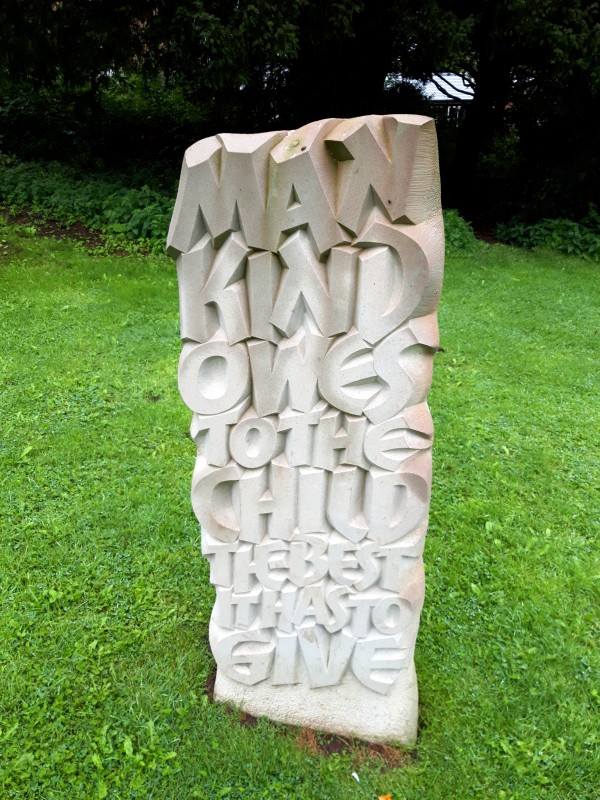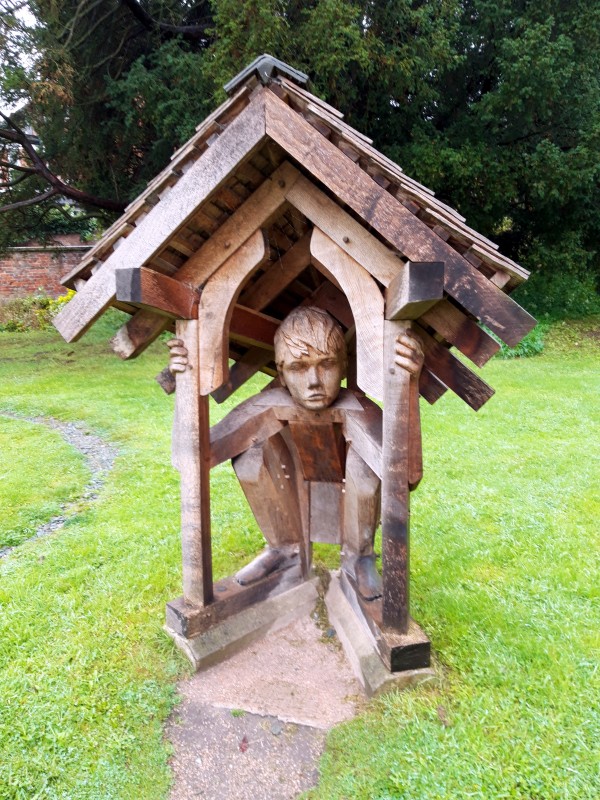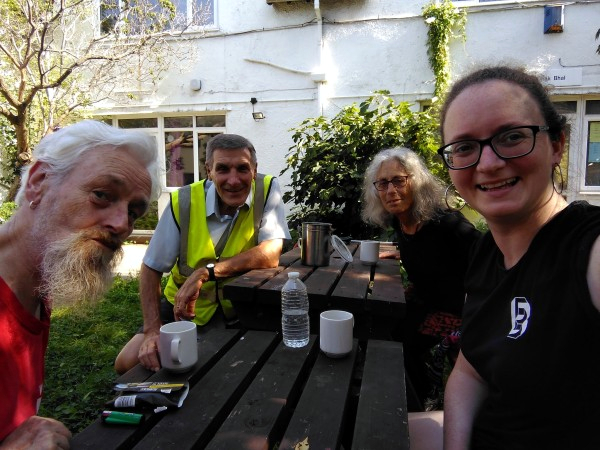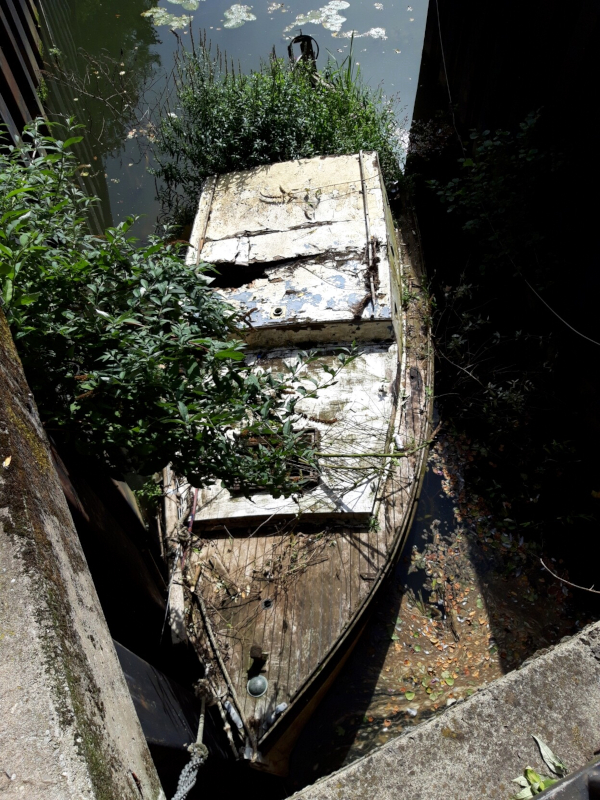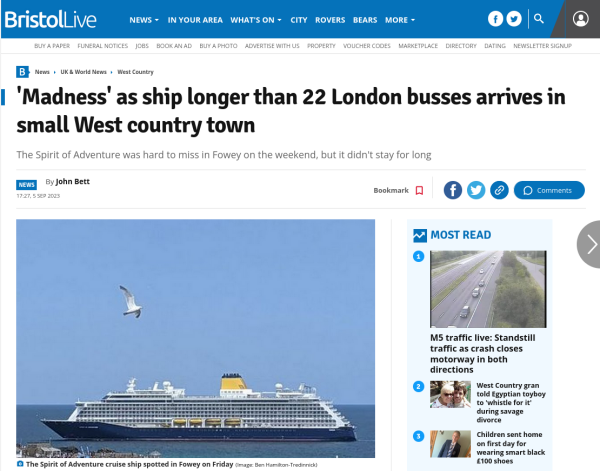City rejoins Gloucestershire – Bristol Live exclusive
One time long ago there was a county called Gloucestershire. It was a large county that included the city of Bristol as one of its major centres of population. However, that all changed in 1373 when Bristol was granted county status in its own right by the king through the usual expedient of paying him a sufficiently large quantity of cash.
However, that has now all changed and Bristol is once again in the embrace of Gloucestershire, even though the news has been suppressed and can only be found by a creful reading of the Bristol Live website, where it appears in a piece by Emma Flanagan inviting readers to vote for their favourite Chinese takeaways.
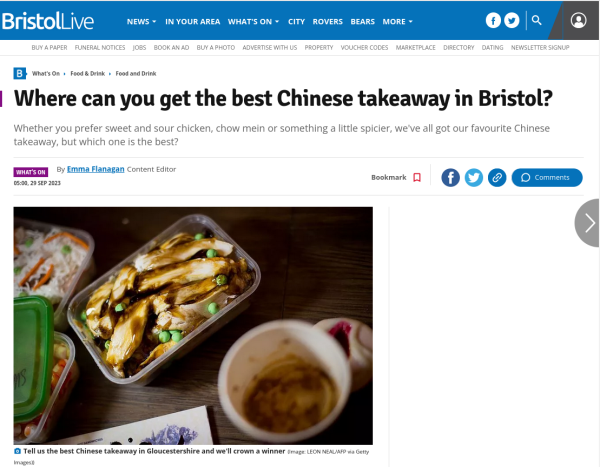
The headline to the article asks Where can you get the best Chinese takeaway in Bristol?. There’s no mention there about the city being returned to its former historical county 650 years after making its escape from the clutches of the county that grew up based on the old Roman settlement of Glevum.
The clue to Bristol returning to Gloucestershire is well concealed, hiding in the photo caption near the top of piece; it reads Tell us the best Chinese takeaway in Gloucestershire and we’ll crown a winner.
Will this mean a change in the city’s extortionate rate of council tax? Better public services? Improved public transport? Not a word mentioned.
No corresponding article asking readers to rate Chinese takeaways in Bristol has been found on Bristol Live’s sister title, Gloucestershire Live (so far. Ed.), so this dreadful piece of copy has not been shared with other Reach publications.
Moving Bristol to Gloucestershire was not the only inaccuracy of the geographical kind appearing on the Bristol Live website today. By some strange alteration in geophysical forces, the city has been moved from nestling on the banks of the Bristol Avon to those of the mighty Severn/Hafren, as per the screenshot below.
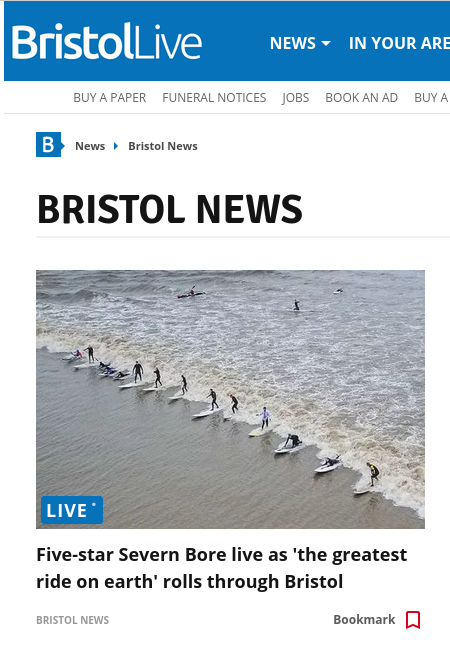
Since this morning the text of the headline has now been changed to read Five-star Severn Bore live as ‘the greatest ride on earth’ rolls through West Country.
If the Bristol Live website ever had a corrections and clarifications column, it would be several times larger than the paper’s website!

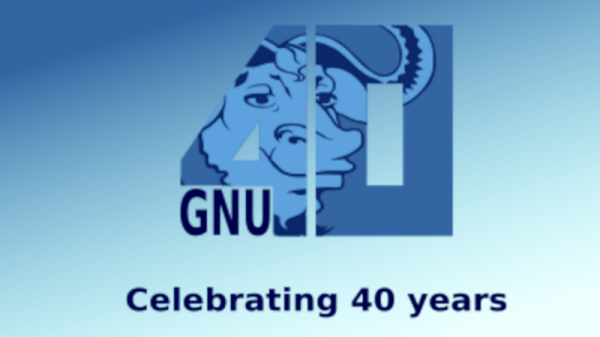
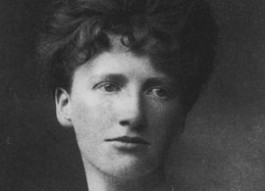 As a family, the Jebbs were comfortably off with a strong social conscience plus a commitment to public service. According to Wikipedia, “Her mother had founded the Home Arts and Industries Association, to promote Arts and Crafts among young people in rural areas; her sister Louisa would help found the Women’s Land Army in World War I. Another sister, Dorothy, who married the Labour MP Charles Roden Buxton, campaigned against the demonisation of the German people after the war.”
As a family, the Jebbs were comfortably off with a strong social conscience plus a commitment to public service. According to Wikipedia, “Her mother had founded the Home Arts and Industries Association, to promote Arts and Crafts among young people in rural areas; her sister Louisa would help found the Women’s Land Army in World War I. Another sister, Dorothy, who married the Labour MP Charles Roden Buxton, campaigned against the demonisation of the German people after the war.”